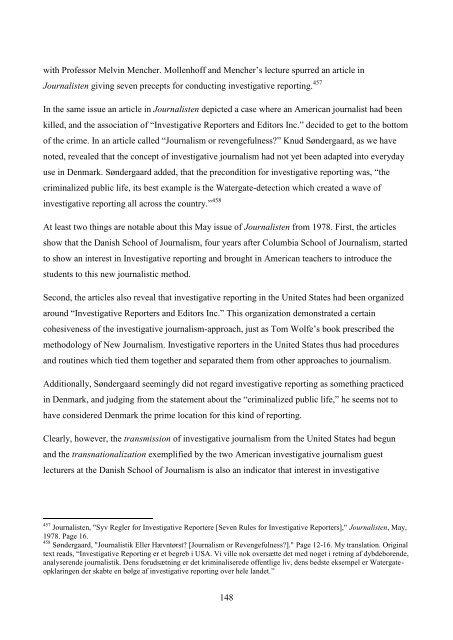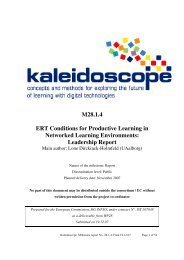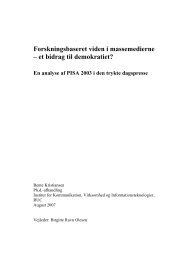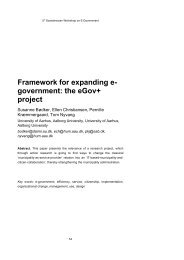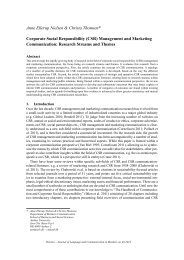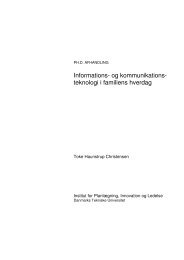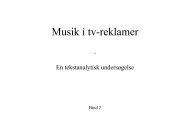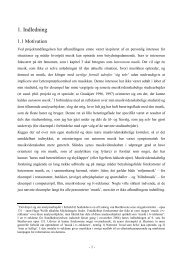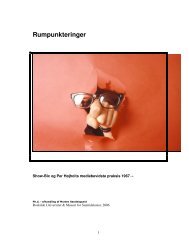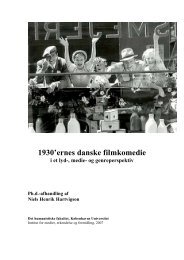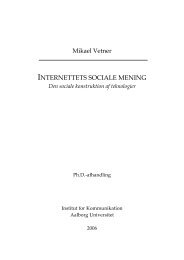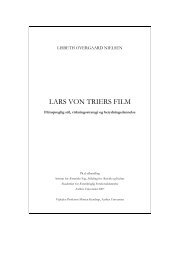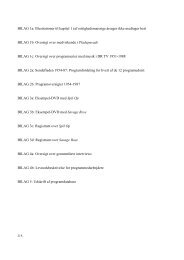The Jeremiad Over Journalism
The Jeremiad Over Journalism
The Jeremiad Over Journalism
Create successful ePaper yourself
Turn your PDF publications into a flip-book with our unique Google optimized e-Paper software.
with Professor Melvin Mencher. Mollenhoff and Mencher‘s lecture spurred an article in<br />
Journalisten giving seven precepts for conducting investigative reporting. 457<br />
In the same issue an article in Journalisten depicted a case where an American journalist had been<br />
killed, and the association of ―Investigative Reporters and Editors Inc.‖ decided to get to the bottom<br />
of the crime. In an article called ―<strong>Journalism</strong> or revengefulness?‖ Knud Søndergaard, as we have<br />
noted, revealed that the concept of investigative journalism had not yet been adapted into everyday<br />
use in Denmark. Søndergaard added, that the precondition for investigative reporting was, ―the<br />
criminalized public life, its best example is the Watergate-detection which created a wave of<br />
investigative reporting all across the country.‖ 458<br />
At least two things are notable about this May issue of Journalisten from 1978. First, the articles<br />
show that the Danish School of <strong>Journalism</strong>, four years after Columbia School of <strong>Journalism</strong>, started<br />
to show an interest in Investigative reporting and brought in American teachers to introduce the<br />
students to this new journalistic method.<br />
Second, the articles also reveal that investigative reporting in the United States had been organized<br />
around ―Investigative Reporters and Editors Inc.‖ This organization demonstrated a certain<br />
cohesiveness of the investigative journalism-approach, just as Tom Wolfe‘s book prescribed the<br />
methodology of New <strong>Journalism</strong>. Investigative reporters in the United States thus had procedures<br />
and routines which tied them together and separated them from other approaches to journalism.<br />
Additionally, Søndergaard seemingly did not regard investigative reporting as something practiced<br />
in Denmark, and judging from the statement about the ―criminalized public life,‖ he seems not to<br />
have considered Denmark the prime location for this kind of reporting.<br />
Clearly, however, the transmission of investigative journalism from the United States had begun<br />
and the transnationalization exemplified by the two American investigative journalism guest<br />
lecturers at the Danish School of <strong>Journalism</strong> is also an indicator that interest in investigative<br />
457<br />
Journalisten, "Syv Regler for Investigative Reportere [Seven Rules for Investigative Reporters]," Journalisten, May,<br />
1978. Page 16.<br />
458<br />
Søndergaard, "Journalistik Eller Hævntørst? [<strong>Journalism</strong> or Revengefulness?]." Page 12-16. My translation. Original<br />
text reads, ―Investigative Reporting er et begreb i USA. Vi ville nok oversætte det med noget i retning af dybdeborende,<br />
analyserende journalistik. Dens forudsætning er det kriminaliserede offentlige liv, dens bedste eksempel er Watergateopklaringen<br />
der skabte en bølge af investigative reporting over hele landet.‖<br />
148


